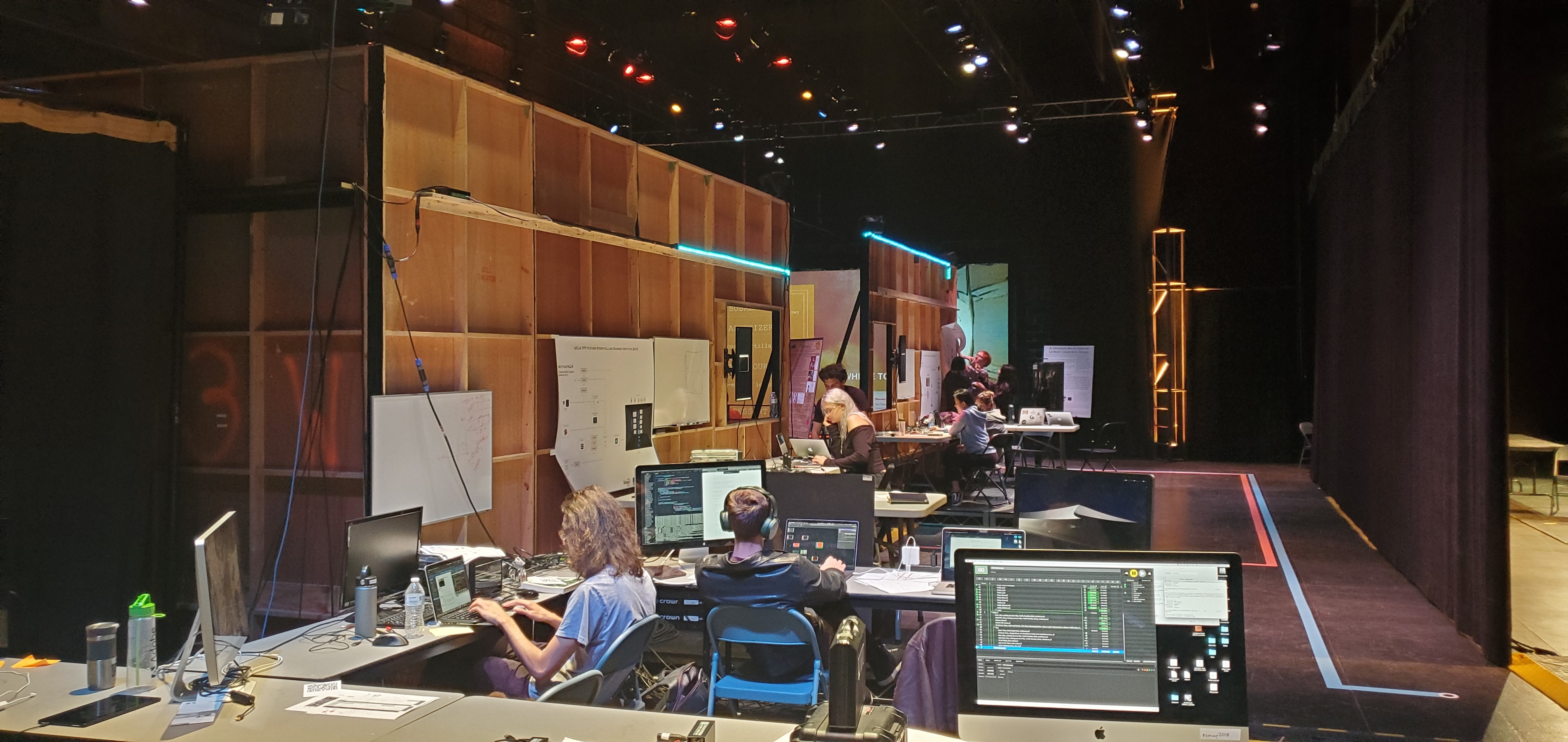@LAs
Summer 2019 | Developer@LAs was a location-adaptive mixed reality pop-up pavilion researching the potential of contemporary machine learning to balance narrative cohesion with audience agency in future storytelling systems. The pavilion was comprised of three exhibits, plus on-boarding and off-boarding areas.
The @LAs (read ‘at LAs’ or ‘atlas’) prototypes explored opportunities for interactive installations about the city of Los Angeles in the context of the upcoming 2028 Olympic Games. Students creating exhibit prototypes searched for ways to portray the many layers of Los Angeles, engaging international visitors and locals alike. The infrastructure and concept focused on group over individual interaction, tracking audience participation passively but on an ongoing basis: Audience members were greeted in an onboarding area where they received a unique QR code. Scanning the code with a mobile device directed visitors to a webform where they were asked several questions about their self-reported identity with respect to Los Angeles. Visitors were then free to circulate through three group interaction spaces, or exhibits. Upon entering an exhibit, visitors scanned their QR code. Scans triggered notifications which let our system know which audience members were in which exhibit at any given time. This data allowed the artists to author exhibits which dynamically changed based on who was present in the experience. Each exhibit pulled media from the same greater media repository, providing narrative cohesion as visitors explored the pavilion.
My objective as part of the core development team was to provide flexible infrastructure to allow artists to author data-driven exhibits. We identified three strategies that were used to accomplish this goal: (1) the use of conceptual and technical frameworks selected to bridge artistic and technical designs, (2) standardization on cloud storage to encourage host-independent approaches to media, and (3) an edge+cloud computing model incorporating serverless functions to encourage modular and host independent development. After the installation, I informally evaluated the promise of the strategies based on survey responses from participants.
A behind-the-scenes development work view:

The scenic design of the space was that of a metro station, a reference to the massive overhaul in public infrastructure necessary for Los Angeles to host the Olympics, and the resulting advantages and problems that result.
The stills above are used with the following permission:
UCLA TFT Future Storytelling Summer Institute 2019. Copyright (C) 2019 Regents of the University of California. Used by permission.